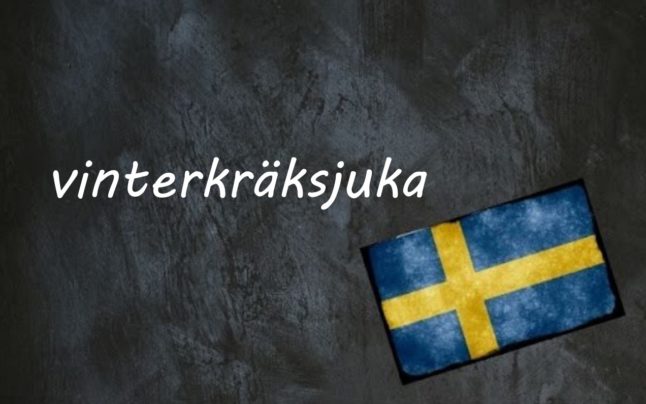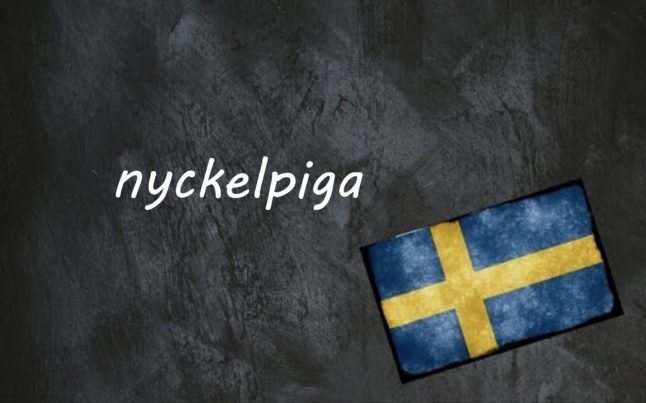Vinterkräksjuka is usually translated in English as “winter vomiting virus” or “norovirus” and the Swedish word can be broken down into the words vinter (winter), kräk (from kräkas meaning “to vomit” – note that kräk used on its own can also be an insult meaning something like “creep” or “wretch”), and sjuka (illness).
It’s caused by the Caliciviridae group of viruses, and symptoms including nausea, vomiting, and diarrhea typically emerge shortly after infection. It’s not a pleasant experience, and thousands are affected each year. Many Swedish families will have their own horror stories of the whole household being infected with the bug.
- Don’t miss any of our Swedish words and expressions of the day by downloading The Local’s new app (available on Apple and Android) and then selecting the Swedish Word of the Day in your Notification options via the User button
The best way to try to ward off the illness is to keep good hand hygiene by washing hands with soap and water regularly, and if you experience the symptoms, stay hydrated and get rest.
So why have we chosen this word for today?
Well, the virus is most common between the months of November and April, and Sweden’s Public Health Agency said this week that the 2023/24 season had started based on searches for vinterkräksjukan on healthcare website 1177, as well as analysis of voluntary reports to microbiological laboratories across the country.
So, now you know. We hope you don’t need to use this word, but if you do end up getting the virus, then at least you know what to call it.
Example sentences
Så kallad vinterkräksjuka orsakas av calicivirus
The so-called winter vomiting bug is caused by calcivirus
Hur kan jag skydda mig mot vinterkräksjukan?
How can I protect myself from the winter vomiting bug?
Need a good Christmas gift idea?
Villa, Volvo, Vovve: The Local’s Word Guide to Swedish Life, written by The Local’s journalists, is available to order. Head to lysforlag.com/vvv to read more about it. It is also possible to buy your copy from Amazon US, Amazon UK, Bokus or Adlibris.



 Please whitelist us to continue reading.
Please whitelist us to continue reading.
Member comments